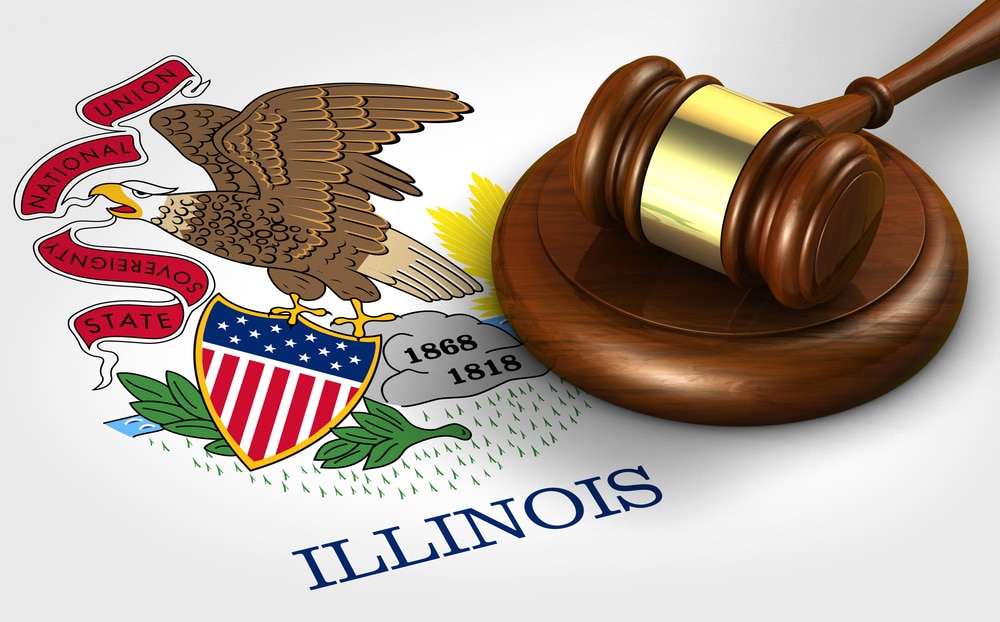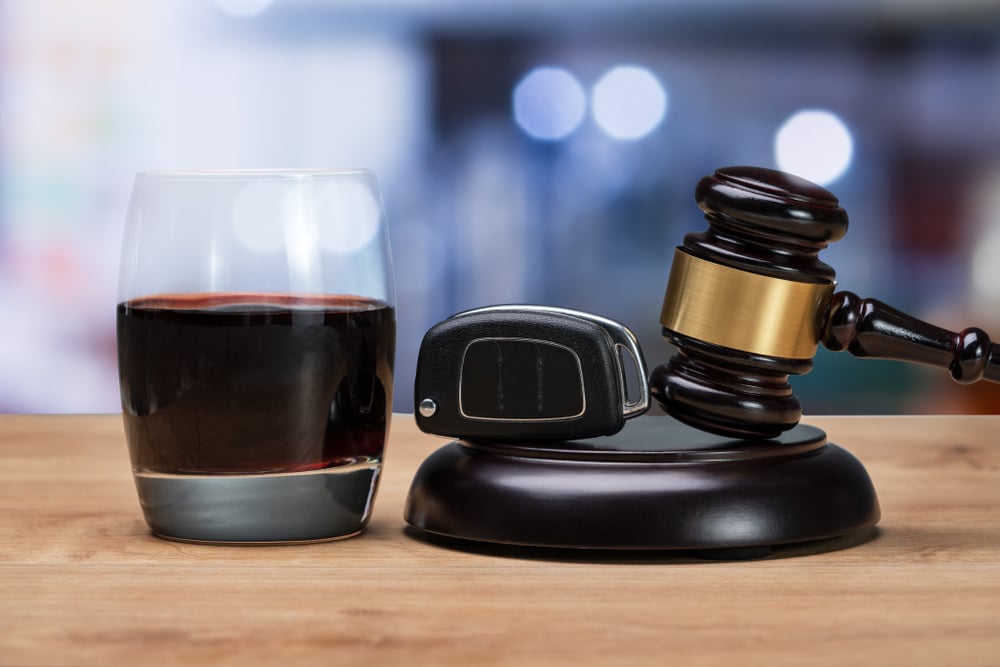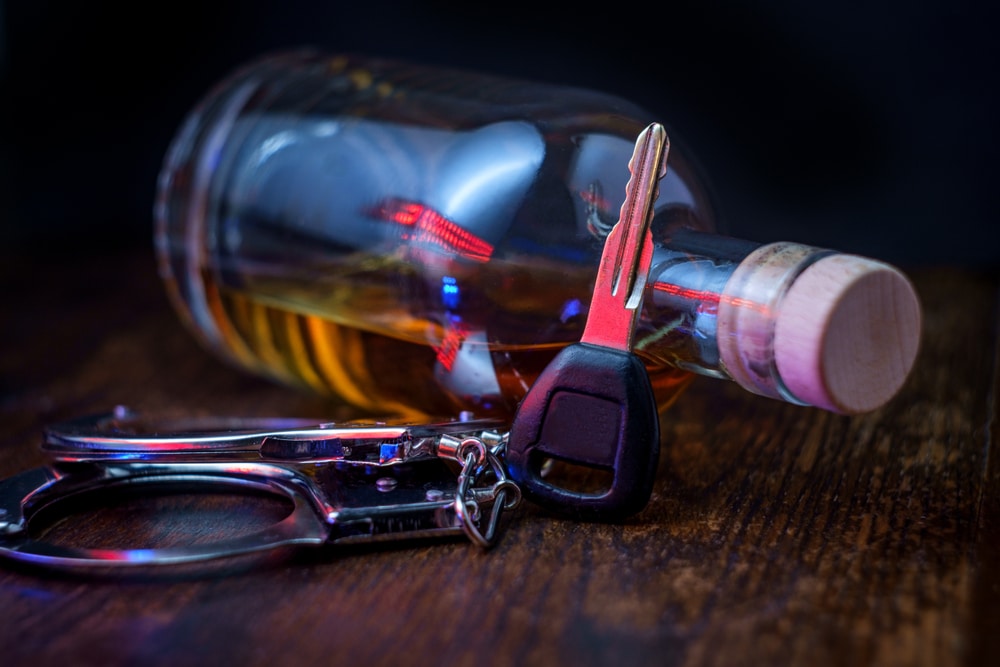
Illinois enforces strict DUI laws with a per se blood alcohol concentration (BAC) limit of 0.08% for drivers 21 and over, and zero tolerance (0.00%) for drivers under 21. The state operates under implied consent laws, requiring drivers to submit to chemical testing when requested by law enforcement with reasonable suspicion of impairment.
Law enforcement agencies across Illinois coordinate efforts between state police, county sheriffs, and local departments. The state’s diverse geography, from dense urban areas like Chicago to rural farmland, creates varied enforcement challenges and requires flexible approaches to DUI prevention and detection.

0.08% or higher for regular drivers and 0.04% for commercial drivers

Yes

6 months

Mandatory

Yes (0.16%+)
Illinois presents a complex DUI landscape shaped by its mix of dense urban centers, suburban communities, and rural areas. Chicago’s metropolitan area, with its extensive nightlife and entertainment districts, presents different challenges than rural areas where limited public transportation options impact DUI incidents.
The state’s extensive highway system, including major interstate corridors, requires coordinated enforcement efforts. Seasonal variations in weather conditions and major events, such as sporting events and festivals, influence enforcement strategies and resource allocation.
First-time DUI offenders in Illinois face up to one year in jail, fines up to $2,500, and license suspension for a minimum of one year. The state employs a five-year lookback period for most purposes, though some enhanced penalties consider a longer period.
Multiple offenses result in increasingly severe penalties, with third and subsequent offenses classified as felonies. Aggravating factors such as high BAC levels (0.16% or higher), accidents causing injury, or the presence of minors in the vehicle trigger enhanced penalties.
Illinois imposes heightened penalties for aggravated DUI cases, including those involving death, serious injury, driving on a suspended license, or operating a school bus with passengers. These circumstances often result in felony charges with mandatory prison sentences and extended license revocations.
The state maintains specific provisions for commercial drivers (0.04% BAC limit) and zero tolerance for drivers under 21. Special consideration is given to DUIs involving school zones, construction zones, or accidents resulting in great bodily harm, with these circumstances triggering automatic felony charges.
Illinois employs comprehensive enforcement strategies including roadside safety checks, saturation patrols, and targeted enforcement zones. Law enforcement agencies utilize both marked and unmarked vehicles, with increased presence during high-risk periods such as holidays and major sporting events.
The state implements a coordinated approach between different law enforcement agencies, particularly in metropolitan areas where jurisdictions overlap. Officers receive specialized training in DUI detection, including Advanced Roadside Impaired Driving Enforcement (ARIDE) and Drug Recognition Expert (DRE) certification.
Illinois utilizes state-of-the-art breath testing equipment, including both preliminary breath testing devices for roadside screening and evidential breath testing instruments at police stations. The state maintains strict certification and calibration requirements for all testing equipment.
Blood and urine testing facilities are available throughout the state, with established protocols for sample collection and chain of custody. Law enforcement agencies increasingly employ dashboard cameras and body-worn cameras to document field sobriety testing and driver behavior.
Illinois maintains a comprehensive network of treatment providers offering various levels of intervention, from basic education to intensive outpatient and residential programs. Programs must meet state certification requirements and follow standardized assessment and treatment protocols.
Treatment options are tailored to individual risk levels and needs, with specific programs for first-time offenders versus repeat offenders. The state emphasizes evidence-based practices and requires regular program evaluation and outcome reporting.
Illinois requires all DUI offenders to complete a professional evaluation and follow recommended treatment before license reinstatement. The framework establishes minimum program requirements based on risk level, with more intensive interventions required for high-risk and repeat offenders.
The state’s Division of Alcoholism and Substance Abuse (DASA) oversees treatment provider certification and program standards. Treatment requirements typically include education components, counseling sessions, and may involve intensive outpatient or residential treatment for severe cases.


Illinois implements strict monitoring through a combination of court supervision, probation oversight, and technological solutions. The state utilizes random drug and alcohol testing, scheduled check-ins, and may require continuous alcohol monitoring devices for high-risk offenders.
Violations of monitoring requirements result in swift consequences, including potential jail time and extended supervision periods. The state’s monitoring system includes coordination between courts, probation departments, and treatment providers to ensure comprehensive oversight.
Illinois operates a dual-track system processing DUI cases through both criminal courts and administrative channels via the Secretary of State’s office. Administrative license suspensions begin 46 days after arrest, with drivers having limited time to request administrative hearings.
The state maintains separate processes for statutory summary suspensions (failed tests) and implied consent suspensions (test refusals). Administrative processes run independently of criminal proceedings, ensuring prompt license actions regardless of criminal case status.
Administrative hearings focus on specific statutory elements and technical requirements, including proper notice, testing procedures, and documentation. Hearing officers have authority to sustain, modify, or vacate license suspensions based on evidence presented.
The process includes provisions for Monitoring Device Driving Permits (MDDP) and restricted driving permits for essential activities. Administrative procedures include strict deadlines and documentation requirements, with limited grounds for challenging suspensions.
Illinois DUI cases begin in Circuit Courts, with initial appearances typically occurring within weeks of arrest. First-time offenders may be eligible for court supervision, while repeat offenders face mandatory convictions. The state operates specialized DUI courts in some jurisdictions, focusing on rehabilitation through intensive supervision.
Cases involving felony charges are handled by dedicated criminal court divisions. The court system maintains specific procedures for plea agreements, trials, and sentencing, with mandatory minimum penalties for certain offenses. Judges have discretion within statutory guidelines to impose additional requirements based on case circumstances.
Key agencies include the Illinois State Police, Secretary of State’s office, Department of Transportation, and Department of Human Services. The Secretary of State’s office manages driver’s licenses and administrative hearings, while the Department of Human Services oversees treatment provider certification.
Local law enforcement agencies, county state’s attorneys, and probation departments play crucial roles in enforcement and supervision. The state maintains specialized units within these agencies focused on DUI enforcement and prevention.
Illinois participates in the Driver License Compact, sharing conviction information with other states and enforcing out-of-state penalties. The state’s position as a major transportation hub, particularly around Chicago, creates unique challenges with interstate drivers and enforcement coordination.
Border considerations with neighboring states require special attention, particularly regarding different BAC limits and marijuana laws. The state maintains procedures for handling out-of-state licenses, insurance requirements, and conviction reciprocity.
Illinois contains multiple jurisdictional layers including state, county, municipal, and specialized enforcement zones. The Chicago metropolitan area presents unique challenges with overlapping jurisdictions and high traffic volumes.
The state coordinates with federal authorities regarding incidents on federal properties and military installations. Special considerations apply to cases involving diplomatic immunity or federal employees.
DUI offenses in Illinois generate substantial costs including court fees, fines, treatment expenses, and increased insurance premiums. First-time offenders often face total costs exceeding $10,000, while repeat offenders encounter significantly higher expenses.
The state allocates considerable resources to enforcement, prosecution, and rehabilitation programs. Economic impacts extend beyond direct costs to include lost productivity, healthcare expenses, and property damage from DUI-related crashes.


Illinois communities bear significant burdens from DUI incidents, including emergency response costs, healthcare expenses, and lost productivity. The impact is particularly severe in urban areas with high population density and frequent DUI-related crashes.
The state’s diverse population requires culturally sensitive approaches to prevention and treatment. Societal costs include both tangible expenses and intangible impacts on families and communities affected by DUI incidents.
Recent legislative efforts focus on strengthening penalties for drug-impaired driving and expanding testing capabilities. The state legislature regularly reviews DUI laws to address emerging challenges, particularly regarding cannabis impairment following legalization.
Proposed legislation includes implementing new testing technologies and enhancing penalties for extreme cases. There is increasing emphasis on treatment alternatives and prevention programs, particularly in underserved communities.
Illinois implements advanced enforcement technologies including electronic citation systems and digital evidence management. Law enforcement agencies utilize automated license plate readers and real-time information sharing between jurisdictions.
The state explores new monitoring technologies including remote breath testing devices and GPS monitoring systems. Advanced data analytics help identify high-risk locations and times for enhanced enforcement efforts.
Illinois faces increasing challenges with drug-impaired driving, particularly following cannabis legalization. Law enforcement agencies expand training in drug recognition and implement new detection methods while addressing complex issues of proving impairment.
The state grapples with rising instances of poly-substance impairment, combining alcohol with prescription medications or illegal drugs. Changes in social patterns, particularly in urban areas, create new enforcement challenges around ride-sharing services and alternative transportation options.
Illinois implements comprehensive prevention strategies targeting various demographic groups, with particular focus on youth education and high-risk populations. Programs include school-based initiatives, community outreach, and targeted campaigns during major events and holidays.
The state provides multilingual materials and culturally sensitive programs reaching diverse communities. Prevention efforts adapt to local needs, with different approaches for urban, suburban, and rural areas.
DUI convictions in Illinois can significantly impact employment opportunities, particularly in positions requiring driving or professional licenses. Commercial drivers face especially severe consequences, with mandatory disqualification periods and potential career-ending implications for multiple offenses.
Professional license holders, including healthcare workers, teachers, and government employees, may face disciplinary actions or licensing restrictions. The state’s reporting requirements ensure employers in sensitive positions are notified of DUI convictions.
Illinois tracks treatment outcomes through standardized reporting systems, showing varying success rates across different program types. Research indicates programs combining counseling, education, and support services demonstrate lower recidivism rates.
Success rates improve with longer treatment duration and comprehensive aftercare support. The state continuously evaluates program effectiveness, adjusting requirements and approaches based on outcome data.
DUI convictions in Illinois result in substantial insurance consequences, with premium increases often exceeding 200%. Insurance companies typically require high-risk SR-22 coverage for a minimum of three years following conviction.
Multiple offenses or accidents may result in policy cancellation and difficulty obtaining new coverage. The state monitors insurance compliance through electronic verification systems, with immediate consequences for coverage lapses.


Illinois mandates SR-22 insurance filings for all DUI offenders seeking license reinstatement. The filing must be maintained continuously for a specified period, typically three years, with automatic license suspension for any lapse in coverage.
The state maintains strict monitoring of SR-22 compliance through electronic reporting systems. Requirements include maintaining coverage above minimum liability limits, creating significant financial burden for offenders.
DUI convictions in Illinois create significant challenges for daily life, particularly in areas with limited public transportation. License suspensions impact employment, education, and family responsibilities, with effects magnified in rural areas lacking alternative transportation options.
Financial burdens from fines, fees, and increased insurance costs can create long-term economic hardship. Social stigma and professional impacts may persist well beyond the formal punishment period.
Illinois maintains a comprehensive DUI enforcement and prevention system reflecting its diverse population and geographic challenges. The state combines strict enforcement with rehabilitation opportunities, implementing both punitive measures and treatment programs to address impaired driving.
The legal framework establishes clear consequences while providing paths to recovery through structured treatment and monitoring programs. Administrative procedures work alongside criminal proceedings to ensure swift action while maintaining due process rights. The state’s implementation of technology and coordination between agencies enhances enforcement effectiveness.
Treatment and rehabilitation programs form a crucial component of the state’s approach, with particular emphasis on accessibility and cultural sensitivity. The economic impact extends beyond direct penalties to include broader societal costs, particularly affecting employment opportunities and family stability.
The state’s unique characteristics – including its major urban centers, extensive transportation network, and diverse population – create distinct challenges in both enforcement and prevention efforts. Recent developments focus on addressing challenges related to drug-impaired driving, changing demographics, and the integration of new enforcement technologies.
The system continues to evolve through legislative updates and program evaluations, ensuring it meets changing circumstances while maintaining its fundamental goal of reducing impaired driving incidents. Special attention is given to balancing enforcement with rehabilitation and addressing the unique challenges faced by different communities across the state.
At DUI 101, our mission is to empower you with the knowledge needed to make informed decisions during this challenging time. Explore our articles and guides to better understand your situation and the steps ahead.
© 2024 Chapman SEO LLC. This website is for educational and informational purposes only. All content is created using AI technology and maintained by non-lawyers and should not be considered legal advice. The information provided is general in nature and may not be suitable for your specific situation. Always consult with a qualified legal professional for advice regarding your individual circumstances. We do not create attorney-client relationships through this website. By using this site, you acknowledge that you have read and understand these terms.